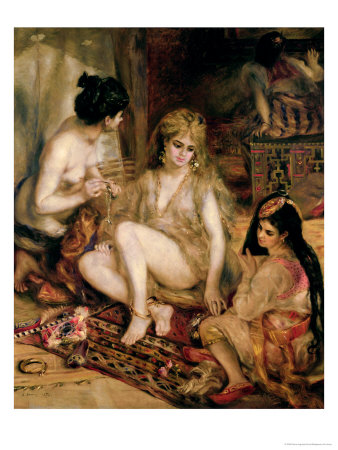"Josephus spoke of polygamy and concubines among the aristocracy and Herod the Great was known to have had ten wives. The Nazoreans of Yeshu were known to have practiced polygamy and to have even required it of their higher Priesthood officers. The practice of allowing women, as well as men, to have more than one spouse was where the Nazoreans got into disputes with the other sects."–Davied Asia Israel, "Yeshu"
"The most poignant and well documented account of polygamy among Nazoreans is that of Yuhana (John the Baptist). He married both Anhar and Qintat and had at least eight children. The lifestyle of Yuhana and Yeshu would have been very close, if not identical."–Davied Asia Israel, "Yeshu"
"And I gave thee thy master's house, and thy master's wives into thy bosom, and gave thee the house of Israel and of Judah; and if that had been too little, I would moreover have given unto thee such and such things"–2 Samuel 12.
"If he take him another wife; her food, her maiment, and her duty of marriage, shall he not diminish."–Exodus 21:10

Buy This Allposters.com
" And Rehoboam (Solomon's son) loved Maachah the dayghter of Absalom above all his wives and his concubine;"–2 Chronicles 11:21
"If a man has two wives, and he loves one but not the other, and both bear him sons...."–Deuteronomy 21:15 "If a man who was married to four wives died, his first wife takes precedence over the second, the second takes precedence over the third and the third over the fourth."–Mishnah, Babylonian Talmud, Tractate Kethuboth 93b, Soncino 1961 Edition page 595-595
"Rabina objected: Why not assume that 'kahennah' implies twelve, and 'we-kahennah', twenty-four? It has indeed been taught likewise: 'He shall not multiply wives to himself beyond twenty-four.' And according to him who interprets the redundant 'waw', it ought to be forty-eight."–Gemara, Tractate Sanhedrin 21a, Soncino 1961 Edition, page 113
"Neither shall he multiply wives to himself — only eighteen. R. Judah said: he may have more, provided they do not turn away his heart."–Babylonian Talmud, Tractate Sanhedrin 21a
"In the Middle Ages, Rabbi Gershom b. Judah (960-1028) convened a synod and urged Jews to give up polygamy"—Jewish Encyclopedia
The following text from the New Testament is often referred to as Jesus' stance against polygamy: ". . .`For this reason a man will leave his father and mother and be united to his wife, and the two will become one flesh'? So they are no longer two, but one. Therefore what God has joined together, let man not separate."–Matthew 19:5,6. While this statement clearly shows that Jesus does not condone divorce, nowhere does it say that a man connot have more than one wife.